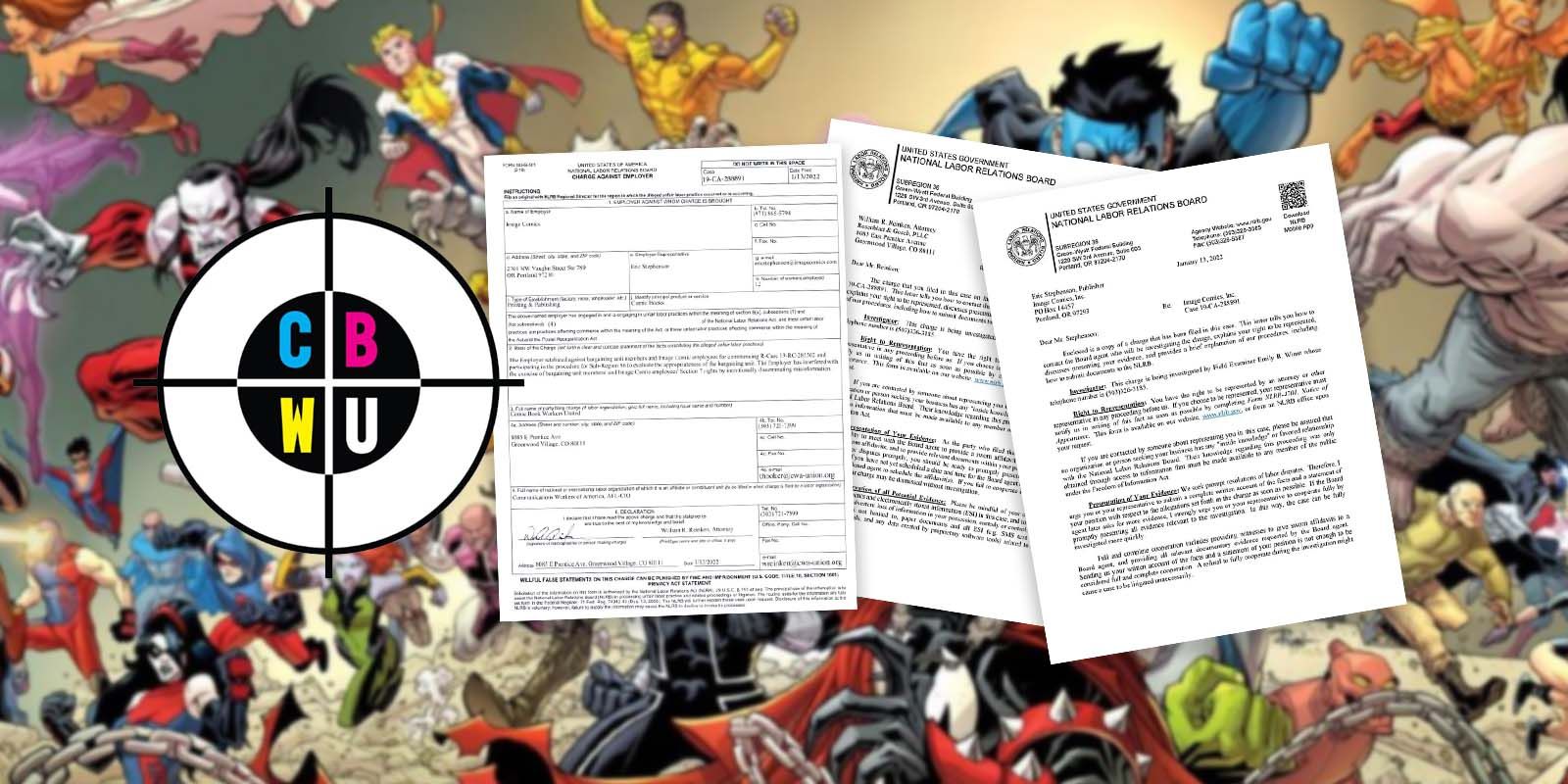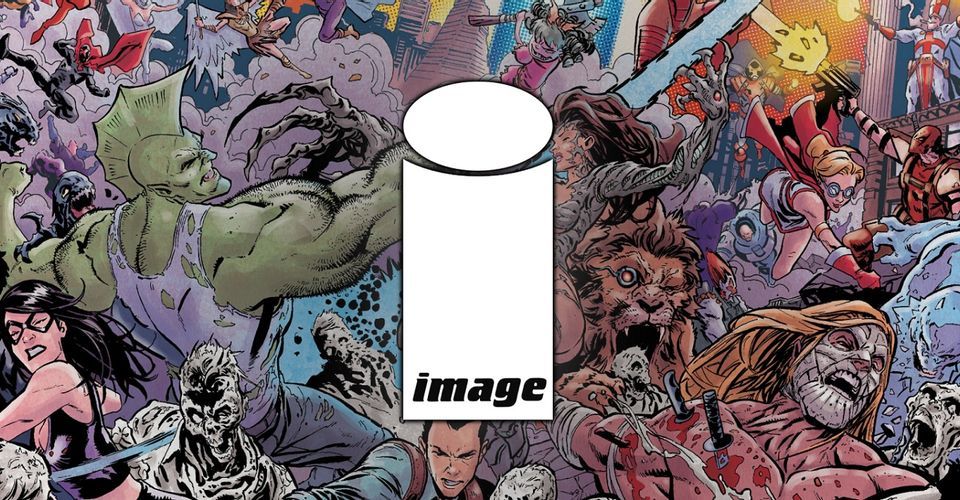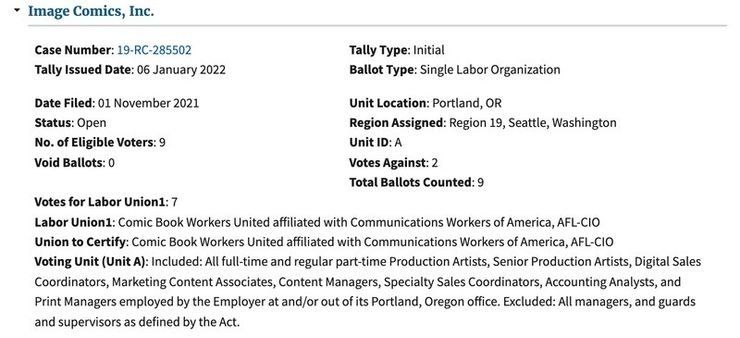Formed in recent months by a core of Image Comics employees, Comic Book Workers United, a union represented by the Communication Workers of America, has filed a claim with the National Labor Relations Board accusing Image of unfair labor practices. While this is the most recent challenge between comic book workers and their respective companies, there has been employee abuse within the industry since its earliest beginnings.
Last year, the Comic Book Workers United announced themselves as a union. Made up of staffers working at Image Comics, they voted by a supermajority to declare the formation of a union. That vote was not immediately recognized by Image Comics, but earlier this year, it was officially ratified. On January 6, 2022, CBWU held their first union election, making Image Comics the first unionized comic book publisher in America. The CBWU announced this unionization with the following statement: “We want to stress how crucial it is for all workers to know they are worthy of respect, fair treatment, fair compensation, and recognition for their time and effort.”
The current claim filed by the CBWU states that Image “retaliated against bargaining unit members and Image Comic employees for commencing R-case 19-RC-285502 and participating in the procedure for Sub-Region 36 to evaluate the appropriateness of the bargaining unit” and that the company “interfered with the exercise of bargaining unit members’ and Image Comic employees’ Section 7 rights by intentionally disseminating misinformation.” One retaliatory act specifically referenced here could be the purported removal of Image employees’ names from the office credits of Hellcop by Image Comics’ VP Jim Valentino.
Since the start of the industry, the treatment of its workers, both creators and support staff, has been neglectful and in some cases abusive. Superman creators Jerry Siegel and Joe Shuster signed away the rights to Superman for $130. Currently, Marvel and DC creators sign work-for-hire contracts giving the publishing companies complete ownership of any characters and stories developed under those contractors. In recent years, Ed Brubaker, the creator of the Winter Soldier, has gone on record about the unfairness of his limited work-for-hire contract and the significant profit Marvel and Disney have made by utilizing the content he created.
In 2017, Jim Starlin stated he received more from Warner Bros for a minor character he created appearing in Batman v. Superman than he received for Marvel’s use of three major characters he created, Thanos, Gamora, and Drax in Guardians of Galaxy. Marvel ultimately renegotiated his compensation for the last two Avengers films in response to his concerns. However, such moves have been called “shut-up money” by one Marvel Comics creator.
Years ago, similar concerns over creators’ rights led comic writers and artists Todd McFarlane, Jim Lee, Rob Liefeld, Erik Larsen, Marc Silvestri, Jim Valentino, and Whilce Portacio to form Image Comics—the company now under accusation for unfair labor practices. The CBWU alluded to this history in their initial formation announcement in November 2021: “Their dreams of self-determination and more equitable treatment in the industry they loved and helped make successful are also our dreams . . . We are honored to grow their legacy by taking this step to give all comic book industry professionals, regardless of title, the same rights, guarantees, security, and protections which the founders sought when they broke away from the 'Big Two' to start their own company.”
However, the CBWU feels that this consideration for fair and adequate support of comic book workers does not extend beyond the creators at Image Comics: “For years, comics publishing workers have watched our professional efforts support creators and delight readers. Sadly, we have also watched that same labor be taken for granted at best and exploited at worst . . . Despite years of union busting and anti-organization sentiments in the American workforce, we know that Image has, at its heart, a desire to be first when it comes to doing the right thing for comics workers.”
The film industry has had a long history of labor organization, but the comic book industry has repeatedly fought against any attempts at unionization in the past. Although there are no labor guilds exclusively for comic book writers at the moment, the Science Fiction and Fantasy Writers of America (SFWA) has recently begun admitting them into their guild. Hopefully, this important movement will grow as more attention is brought to the labor challenges within the comics industry.



